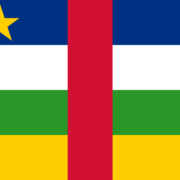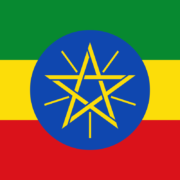Central Africa
Democratic Republic of the Congo
Situated in central Africa, the DRC is landlocked except for a 40km coastline at the Atlantic ocean. It’s the 2nd largest country on the continent after Algeria
Central Africa
Situated in central Africa, the DRC is landlocked except for a 40km coastline at the Atlantic ocean. It’s the 2nd largest country on the continent after Algeria
Population: 98,152,000
Main Religion: Christianity
Christians: 93,396,000
Data source: Todd M. Johnson and Gina A. Zurlo, eds. , World Christian Database (Leiden/Boston: Brill, accessed March 2023)
Trauma care to those targeted with violence because of their faith in Christ.
Situated in central Africa, the DRC is landlocked except for a 40km coastline at the Atlantic ocean. It’s the 2nd largest country on the continent after Algeria. The capital, Kinshasa, is located on the Congo River about 320 miles (515 km) from its mouth. The largest city in central Africa, it serves as the country’s official administrative, economic, and cultural centre.
DRC is a semi-Presidential Republic led by President Felix Tshisekedi. DRC has experienced conflict for more than 50 years between a plethora of armed rebel groups. The weak rule of law has enabled violence, including abductions, detentions, and murders of journalists, to continue with impunity.
Following a long-delayed and disputed election, Felix Tshisekedi was sworn in as president in January 2019. Although the President promised to guarantee the respect of fundamental rights and released most political prisoners, fighting between security forces and armed groups, as well as militia attacks on civilians, has continued to increase.
Despite being rich in natural resources, DRC struggles with inflation and corruption. A 2023 report by Freedom House presents the persistent challenges that DRC has been facing for decades:
“The political system in DRC is paralyzed due to the manipulation of the electoral process by political elites. Citizens are unable to freely exercise basic civil liberties, and corruption is endemic. Physical security is tenuous due to violence and human rights abuses committed by government forces, as well as armed rebel groups and militias in many areas of the country.”
In the east, where the ADF is the most prominent group, the situation has been exacerbated by interference from neighbouring countries. The ADF is designated as a Foreign Terrorist Organization by the United States State Department.
In the eastern regions of the Democratic Republic of Congo (DRC), notably in North Kivu, the situation for Christians has become increasingly perilous due to the presence of armed groups like the “Alliance for Democratic Forces” (ADF-NALU). This group, which has pledged allegiance to the Islamic State (IS), has been particularly aggressive in targeting Christians.
The scale of attacks is alarming: Christian villages have been burned down, pastors, priests, and lay Christians have been abducted, and untold suffering has been inflicted on Christian communities by the ADF and other armed factions. Women and girls remain especially vulnerable to incidences of sexual and gender-based violence at the hands of armed groups. Men and boys are vulnerable to forced recruitment into militias, as well as abductions and killings. Pastors are specifically targeted by jihadists.
The area is a hotbed for more than a hundred different armed groups, making it extremely dangerous for anyone who speaks out against these organisations. Additionally, converts from Islam as well as indigenous religions face societal and familial pressures to engage in non-Christian religious activities. Representatives from the Catholic Church, who have publicly called on the government to respect constitutional electoral deadlines, have also experienced verbal harassment and various forms of interference due to their advocacy.
Muslims in the country have voiced complaints about not receiving the same privileges and treatment as Christians.

 Ethiopia
Ethiopia